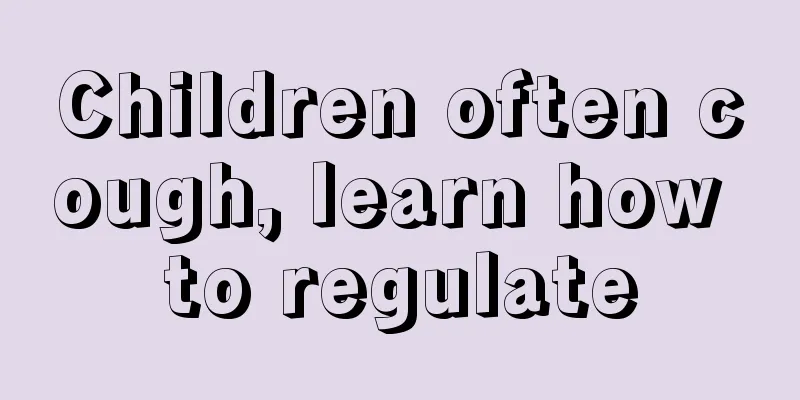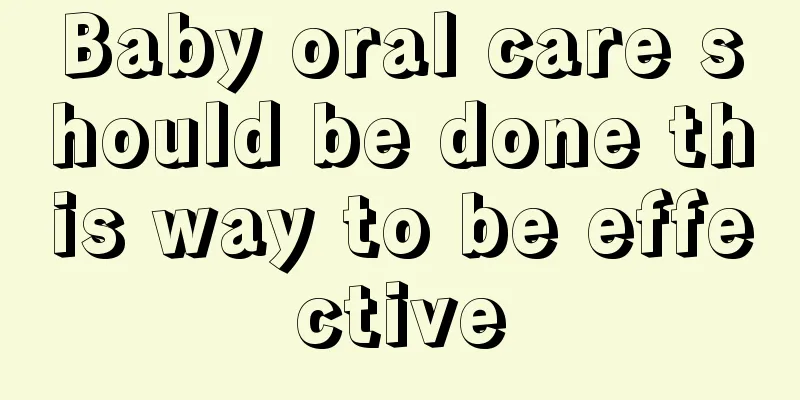Children often cough, learn how to regulate

|
Children often have coughs. Most of the coughing problems are caused by irregular diet. Eating foods that are too dry or too hot, such as melon seeds, chocolate, and greasy foods, will cause excessive sputum in the patient and cause coughing. Also, do not eat foods that are too fishy. As a patient with cough, you must pay attention to more conditioning. General principles of dietary conditioning Avoid cold, sour and spicy foods: Frozen and spicy foods will irritate the throat and aggravate the cough. Therefore, it is not advisable to drink cold or frozen drinks when you have a cough. It is best to warm the milk taken out of the refrigerator before drinking it. Children suffering from "allergic cough" should not drink carbonated beverages to avoid triggering cough attacks. Sour food often causes phlegm to accumulate, making it difficult to cough up, thus aggravating the condition and making the cough difficult to cure. Avoid peanuts, melon seeds, chocolate, etc.: The above foods contain a lot of oil, which can easily breed phlegm after eating and make the cough worse. Avoid fish, shrimp and crabs: Coughing will worsen after eating fishy foods. This is related to the fishy smell irritating the respiratory tract and the allergy to the protein in fish and shrimp foods. Children with allergies should avoid eating the above foods when they have a cough. Avoid supplements Dietary treatment for children with cough First of all, the diet should be light, but nutritious and easy to digest and absorb. If you have poor appetite, you can make some light and delicious vegetable porridge, rice soup, noodle soup and other easily digestible foods. Secondly, drink more boiled water. Drink enough water to meet the child's physiological and metabolic needs. Adequate water can help dilute phlegm and make it easier to cough up. Boiled water is best, and various beverages should never be used to replace boiled water. Third, eat more fresh vegetables and fruits. It can supplement sufficient inorganic salts and vitamins, which is very beneficial for the recovery of colds and coughs. Eating more fruits and vegetables containing carotene, such as tomatoes, carrots, etc., and some foods rich in vitamin A are very helpful in restoring the respiratory mucosa. Fourth, eat less salty or sweet foods. Eating salty food can easily induce cough and make the cough worse; eating sweet food can increase heat and produce phlegm, so it is better to eat less. Avoid irritating foods, such as spicy, fried, cold foods, cold drinks, and allergenic seafood. Snacks such as fried peanuts and melon seeds should also be avoided. |
<<: What are the effects of vitamin E for children
>>: What are the symptoms of baby teething?
Recommend
How can children grow taller?
The fact that children are not growing taller is ...
What is the best food for children with dry skin?
Children have very poor physical conditions, whic...
How many times is it normal for a newborn to wake up at night?
After a baby is born, his daily routine is basica...
Height standard and complementary food addition for five-month-old babies
Parents are very concerned about their children&#...
How to treat red pimples on children
It is a common phenomenon for children to get red...
What are bone development indicators?
Many friends want to know whether there are certa...
Children's poop looks like snot
Children's immunity is weaker than that of ad...
What medicine is effective for neonatal jaundice
Jaundice is a hepatobiliary and pancreatic diseas...
There are small white spots on the child's forehead
Generally speaking, if white spots grow on a chil...
Can children's allergies cause fever?
In fact, most cases of allergies will not cause f...
How to deal with foreign matter in baby's eyes
Foreign objects in the eyes can cause great harm ...
Five must-have whole grain recipes for your child’s table
1. Whole wheat bread for breakfast 2 slices of wh...
One-month-old baby has milk curds when defecating
Babies usually need to defecate after birth. Pare...
What causes a child to have a nosebleed due to a fever?
If parents find that their children have a fever ...
How to treat a child with fever and convulsions
I believe that careful parents will find that whe...









